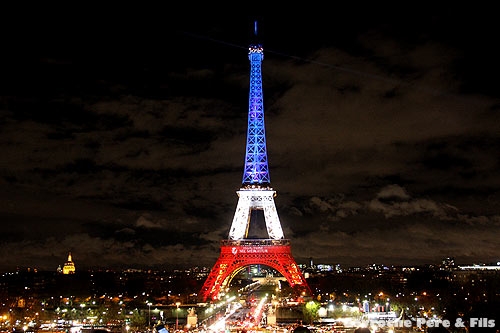France: France: Fluctuat nec mergitur
2016/01/03

Following the terrorist attacks on 13 November, confidence surveys in December understandably showed a sharp fall in the retail and services sectors (-4pts and -2pts, respectively) but they remain strong and point towards further increase in the coming months.
The in general index still stands at 101, marginally above the long-term average, as business confidence improved by +1pt in both manufacturing and construction. Meanwhile, consumption fell -1.1% m/m in November, reflecting declines of -4.7% in consumption of textile clothing and -5.6% in spending on energy, although both these result from the mild temperatures recorded in November.
Indeed, a better indicator of consumer willingness to purchase is spending on durable goods, which increased by +0.5% m/m and +3.1% y/y. As a result, we believe the current modest downturn is temporary. Even so, Q4 will be less strong than initially expected and we have revised our 2015 and 2016 GDP increase forecasts by -0.1pps, to +1.1% and +1.4%, respectively.
- Related Articles
-
French President Francois Hollande walks on the Ujibashi bridge as he visits the Ise-Jingu Shrine in Ise
2016/05/28 French President François Hollande pledged Friday he would press on with his labor reforms, despite strikes that have paralyzed the country. In a press conference on the sidelines of the G-7 summit in Japan, Hollande said, “I will keep going because I think these are good reforms,” adding that his government would ensure “freedom of movement” for citizens among rail strikes and fuel blockades. Addressing the unrest, he said, “We can’t accept that there are unions that dictate the law,” adding, “As chief of national, I want this reform. It fits with everything we have done for four years. I want us to go right to the end.” -
France Business sentiment stable in January
2016/01/28 According to the INSSE business climate survey, the business confidence indicator remained stable in January at December’s 102 points, which had marked a three-month high. Thus, the indicator remains slightly above the long-term 100-point average, which is the benchmark measure the INSEE uses to distinguish between improving and worsening business expectations. According to the INSEE, the result came on the back of improvements in businesses’ assessment regarding their personal and general production expectations, which offset a fall in completed activity and inventories. -
France asks EU partners for new sanctions on Iran
2016/01/28 France has asked its European Union partners to consider new sanctions on Iran for its recent missile tests, officials have told The Associated Press, even as Paris welcomed the president of the Islamic Republic, which is flush with funds from the lifting of other sanctions over Tehran's nuclear program. The ambiguous signals emerging Wednesday from France came as President Hassan Rouhani, a relative moderate elected in 2013, signed billions of dollars in business deals on an before stop in Italy and met with Pope Francis in the initial such Iranian foray into Europe since 1999. France hopes for similarly lucrative deals during Rouhani's two-day visit, along with regional peacemaking efforts as the once-pariah national emerges from decades of isolation. -
France Consumer confidence remains stable in December,
2016/01/17 The consumer confidence indicator elaborated by the National Statistics Institute (INSEE) remained stable in December at November’s 96 points. The result slightly overshot the 95 points the markets had expected. As a result, the consumer confidence indicator remained below its long-term average of 100. In its statement, INSEE pointed out that the result came on the back of an development in consumers’ opinions regarding their next financial prospects over the previous month, which offset a deterioration in households’ completed financial situation. Household’s saving capacity remained virtually stable over the previous month.
- France News
-
- FRANCE: War! Tourists from England, Russia and France involved in bloody fighting
- FRANCE: France’s Hollande Pledges To Push Labor Reforms Amid Revolts
- FRANCE: France Business sentiment stable in January
- IRAN: France asks EU partners for new sanctions on Iran
- FRANCE: France Consumer confidence remains stable in December,
- FRANCE: Egypt: President approves French credit facility deal
- Trending Articles
-
- AUSTRALIA: Australia taxes foreign home buyers as affordability bites
- SERBIA: China’s Xi sees Serbia as milestone on new ‘Silk Road’
- INDIA: Indian central bank chief to step down in surprise move
- CHINA: United States sees China investment talks ‘productive’ after new offers
- THAILAND: Foreign investment plummets in junta ruled Thailand
- UNITED STATES: Trump says Britain should leave EU










